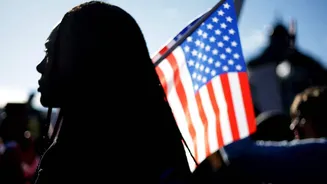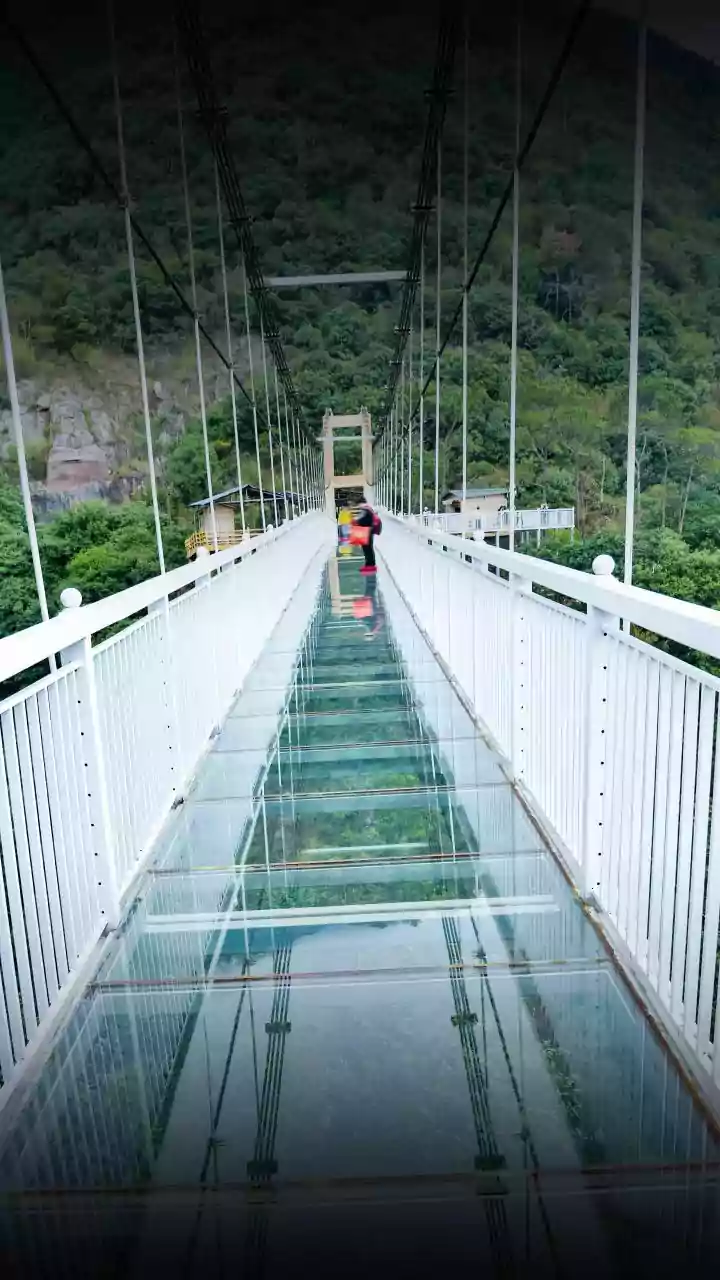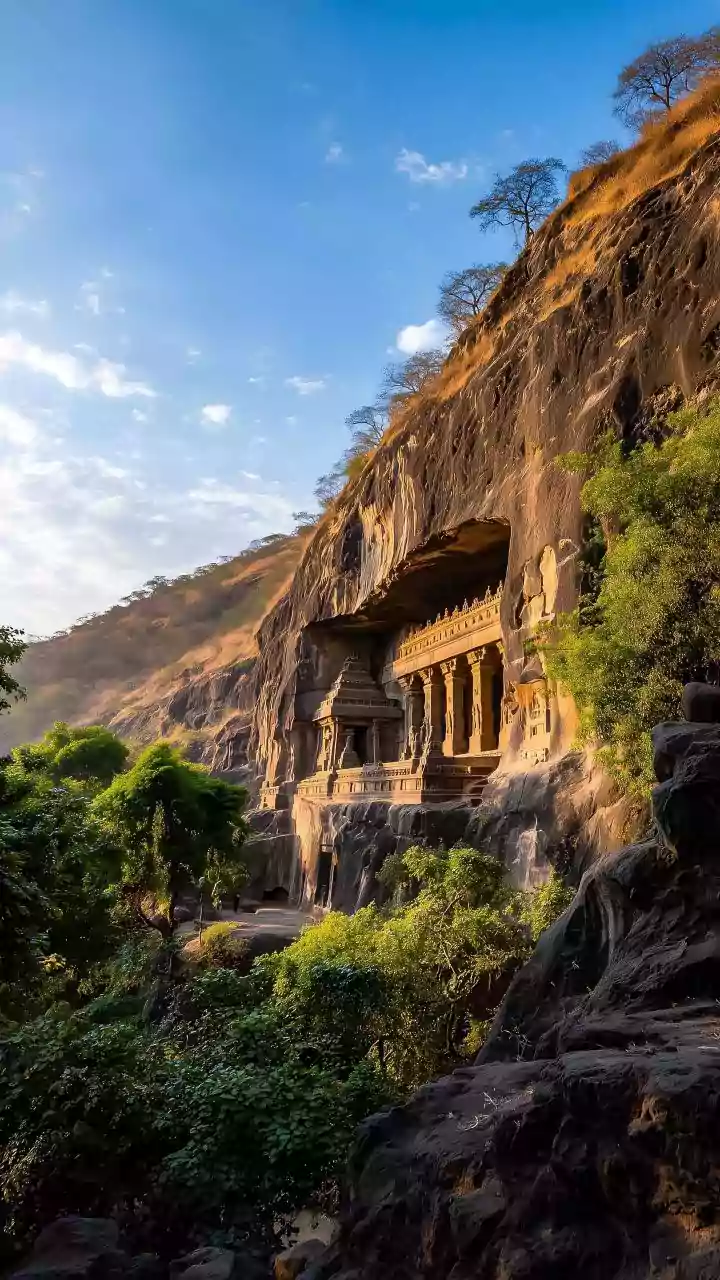What is the story about?
Indians will not be able to apply for the Diversity Immigrant Visa (DV) programme till 2028. Also known as the green card lottery, the programme offers 55,000 immigrant visas each year.
The 2026 DV programme excludes nationals of some countries from applying for the lottery. India is among the countries whose citizens are not eligible for the visa. But why?
We explain.
The Diversity Visa (DV) programme facilitates entry to individuals from countries with low rates of immigration to the United States.
The applicants are selected through a random lottery system, with most residing outside the United States. However, some lottery winners, at the time of their selection, are living in the US in a non-immigrant or other legal status, according to the US Citizenship and Immigration Services (USCIS).
As the name suggests, the programme aims to diversify the immigrant population in the US.
"Current law weights the allocation of immigrant visas primarily toward individuals with close family in the United States and, to a lesser extent, toward those who meet particular employment needs," as per the US Congress.
Those who want to apply for the visa must have completed high school education or its equivalent, or have two years of work experience within the past five years in an "occupation that requires at least two years of training or experience to perform."
The applicant or their spouse must be a "native of one of the countries listed as a foreign state qualified for the diversity visa programme."
The US Department of State divides diversity visas among six geographic regions. No single country can receive more than seven per cent of the available DVs in a year.
For the fiscal year 2026, up to 55,000 diversity visas will be available.
The Diversity Immigrant Visas are allotted to nationals of countries which have sent less than 50,000 immigrants over the past five years.
India is among those countries that have exceeded this limit. In 2021, as many as 93,450 Indians immigrated to the US. This rose to 127,010 in 2022, more than the number of migrants from South America (99,030), Africa (89,570), or Europe (75,610) that moved to the US.
In 2023, 78,070 Indians immigrated to the US . Thus, Indian citizens are ineligible for DV 2026 and until 2028.
Besides India, nationals of Bangladesh, Pakistan, Brazil, Canada, Colombia, Cuba, the Philippines, Venezuela, and South Korea cannot apply for the DV lottery system.
Since Donald Trump came to power in January this year, his administration has cracked down on immigration, with increased US Immigration and Customs Enforcement raids, arrests and deportations.
The US government has also put curbs on legal immigration. It has targeted student visas by tightening social media vetting and enhancing screening.
US State Department officials have also been told to screen for those "who advocate for, aid, or support designated foreign terrorists and other threats to national security; or who perpetrate unlawful anti-Semitic harassment or violence".
The Trump administration has also imposed $100,000 (about Rs 88 lakh) fee on H-1B worker visas. The move affects Indians the most, as they are the largest beneficiaries of these temporary employment visas.
With inputs from agencies
The 2026 DV programme excludes nationals of some countries from applying for the lottery. India is among the countries whose citizens are not eligible for the visa. But why?
We explain.
What is the DV programme?
The Diversity Visa (DV) programme facilitates entry to individuals from countries with low rates of immigration to the United States.
The applicants are selected through a random lottery system, with most residing outside the United States. However, some lottery winners, at the time of their selection, are living in the US in a non-immigrant or other legal status, according to the US Citizenship and Immigration Services (USCIS).
As the name suggests, the programme aims to diversify the immigrant population in the US.
"Current law weights the allocation of immigrant visas primarily toward individuals with close family in the United States and, to a lesser extent, toward those who meet particular employment needs," as per the US Congress.
Those who want to apply for the visa must have completed high school education or its equivalent, or have two years of work experience within the past five years in an "occupation that requires at least two years of training or experience to perform."
The applicant or their spouse must be a "native of one of the countries listed as a foreign state qualified for the diversity visa programme."
The US Department of State divides diversity visas among six geographic regions. No single country can receive more than seven per cent of the available DVs in a year.
For the fiscal year 2026, up to 55,000 diversity visas will be available.
Why Indians are not eligible for DVs
The Diversity Immigrant Visas are allotted to nationals of countries which have sent less than 50,000 immigrants over the past five years.
India is among those countries that have exceeded this limit. In 2021, as many as 93,450 Indians immigrated to the US. This rose to 127,010 in 2022, more than the number of migrants from South America (99,030), Africa (89,570), or Europe (75,610) that moved to the US.
In 2023, 78,070 Indians immigrated to the US . Thus, Indian citizens are ineligible for DV 2026 and until 2028.
Besides India, nationals of Bangladesh, Pakistan, Brazil, Canada, Colombia, Cuba, the Philippines, Venezuela, and South Korea cannot apply for the DV lottery system.
US immigration crackdown
Since Donald Trump came to power in January this year, his administration has cracked down on immigration, with increased US Immigration and Customs Enforcement raids, arrests and deportations.
The US government has also put curbs on legal immigration. It has targeted student visas by tightening social media vetting and enhancing screening.
US State Department officials have also been told to screen for those "who advocate for, aid, or support designated foreign terrorists and other threats to national security; or who perpetrate unlawful anti-Semitic harassment or violence".
The Trump administration has also imposed $100,000 (about Rs 88 lakh) fee on H-1B worker visas. The move affects Indians the most, as they are the largest beneficiaries of these temporary employment visas.
With inputs from agencies




















